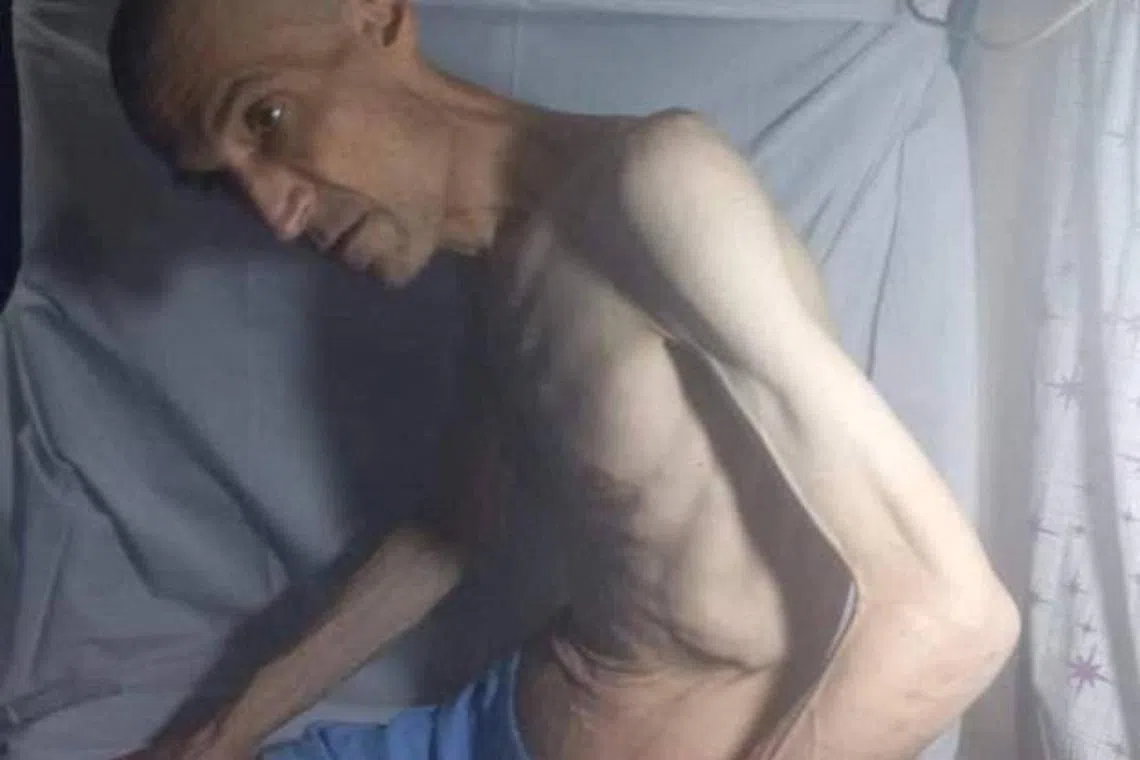Images of emaciated Iranian prisoner on hunger strike prompt outrage
Sign up now: Get ST's newsletters delivered to your inbox

Mr Farhad Meysami began his hunger strike on Oct 7 to protest recent government killings of demonstrators in Iran.
PHOTO: REUTERS
Follow topic:
TEHERAN - Social media images purported to be of an emaciated jailed Iranian dissident on hunger strike have caused outrage online as supporters warned on Friday he risks death for protesting the compulsory wearing of the hijab.
Dr Farhad Meysami, 53, who has been in jail since 2018 for supporting women activists protesting against Iran’s headscarf policy, began his hunger strike on Oct 7, 2022, to protest recent government killings of demonstrators,
The images of Dr Meysami went viral on social media on the same day Iran released award-winning director Jafar Panahi on bail after seven months in jail. Panahi said the images of Dr Meysami reminded him of survivors of the Auschwitz concentration camp.
Iran’s judiciary denied the hunger strike claim and said the photos were from four years ago when Dr Meysami, a physician, did go on hunger strike.
As evidence, the semi-official YJC news agency posted what it said was Dr Meysami’s latest photo, in which he does not look emaciated and is sitting on the floor of his prison cell with a bag of what looks like chips next to him.
Reuters was unable to confirm when the pictures were taken.
Iranian authorities released Panahi on bail after he started a hunger strike this week to demand to be freed pending a retrial, the semi-official ISNA news agency reported, citing the Directors Guild of Iran.
There was no official word from Iran’s judiciary on the release, but videos on social media purportedly showed Panahi speaking to well-wishers outside Evin prison.
“The images of Farhad Meysami... remind one of the people in Auschwitz or of (Mahatma) Gandhi, since Meysami has written about non violence,” Panahi said. “Many are left behind bars... so how can I say I feel happy?“
Iranian authorities detained Panahi in July to serve a six-year sentence
Iran has been rocked by nationwide unrest
Morality police arrested Amini for flouting the hijab policy,
Rights groups say more than 500 protesters have been killed and nearly 20,000 arrested. At least four people have been hanged, according to the Iranian judiciary.
“My client Farhad Meysami’s life is in danger,” tweeted lawyer Mohammad Moghimi. “He went on hunger strike to protest the recent government killings in the streets.” He said Dr Meysami had lost 52kg.
Images show Dr Meysami curled up on what looks like a hospital bed, and another standing, his ribs protruding.
“Shocking images of Dr Farhad Meysami, a brave advocate for women’s rights who has been on hunger strike in prison,” tweeted Robert Malley, Washington’s special envoy for Iran.
“Iran’s regime has unjustly denied him and thousands of other political prisoners their rights and their freedom. Now it unjustly threatens his life,” he said.
Amnesty International said: “These images (of Dr Meysami) are a shocking reminder of the Iranian authorities’ contempt for human rights.”
In a letter published by BBC’s Persian Service on Thursday, Dr Meysami made three demands: an end to executions, the release of political-civil prisoners and an end to “forced-hijab harassment”.
“I will continue my impossible mission in the hope that it may become possible later on with a collective effort,” he wrote. REUTERS

